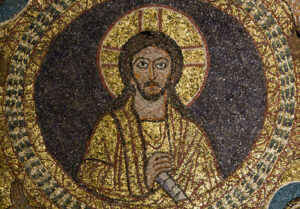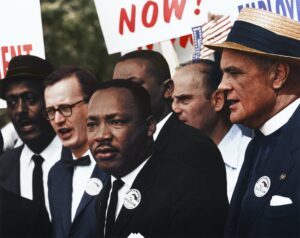For socialists, liberation theology provides a starting point, given its robust account of how spirituality, theology, and praxis intersect. In particular, Brazilian theologians Leonardo Boff and Frei Betto are actively writing suggestive reflections and analyses on the crisis on their personal websites. Brazil, like many other countries, has a significant lack of tests and medical equipment, making the extent of the harm impossible to fully appreciate—a problem that is exacerbated by the denialist approach of far-right president Jair Bolsonaro (or “BolsoNero,” as Boff and Betto like to refer to him on Twitter). Yet these two veterans of the struggle remind us that, faced with paltry responses to the crisis in Brazil and elsewhere, cultivating a spirituality of liberation will help to sustain us through and challenge the new world of COVID-19.
“Spirituality” is a loaded term. Deriving etymologically from words related to “breath” and “wind,” it is probably a good idea not to try to pin it down. Philosopher Pierre Hadot writes in Philosophy as a Way of Life that while “spirit” might be a strange word for contemporary ears, “It is nevertheless necessary to use this term, I believe, because none of the other adjectives we could use—‘psychic,’ ‘moral,’ ‘ethical,’ ‘intellectual,’ ‘of thought,’ ‘of the soul’—covers all the aspects of reality we want to describe.”
While preserving this important ambiguity, we can nevertheless identify certain contours to spirituality within the horizon of liberation. Liberation spirituality is not a detached, disembodied retreat from the problems of this world or our material bodies, nor is it an attempt to trade materialist analysis for abstract religious rhetoric. On the contrary, liberation spirituality is rooted in the body and draws us deeper into (1) solidarity with others, (2) care for ourselves, and (3) critical awareness of the social and political realities that frame our lives. This kind of embodied spirituality is all the more important in a moment when we are thrust into the surreality of social distancing, surrounded by anxiety, alienation, and growing inequality and death tolls. Let me talk about each of these three aspects in turn, taking cues (with a little help from Google Translate) from Boff’s recent essay, “Taking care of your own body and the bodies of others in the time of the coronavirus.”
First, liberation spirituality is a call to solidarity, or care for the bodies of others. It attunes our ears to what Boff often refers to as “the cry of the earth and the cry of the poor” (a phrase that has rubbed off on Pope Francis), opening us out of ourselves and toward the other. In a global pandemic, that cry rises from countries like Venezuela, Iran, Cuba, and others, where imperialist sanctions are knowingly designed to make national crises worse; it rises from homeless communities, where resources are made even more scarce and police continue to harass the vulnerable; it rises from racialized people who are disproportionately at risk of contracting and dying from the virus; it rises from the incarcerated, where inmates fear they will be denied care. In hearing the cry of the oppressed, liberation spirituality does not condescend with philanthropy or charity, but looks for the material causes that give rise to this cry of the oppressed and imposes a demand that we act in order to change them.
One can move too quickly, however, from uncovering the causes of injustice to presuming one knows the perfect solution. For those committed to liberation, the spiritual discipline of examining oneself takes on new relevance. As Boff explains, to be in solidarity with the oppressed means “to contribute so that the needy themselves, as subjects, organize themselves and, with their pressure, guarantee the bases that support life.” Such a contribution presents a real stumbling block for those eager to change the world. It takes work, spiritual and discerning work, to resist the temptation to act as paternalistic guides for the oppressed, challenging ourselves instead to remain with and learn from the oppressed. Most importantly, however, solidarity is not symbolic or metaphorical, just as the cry of the oppressed is not symbolic or metaphorical. Solidarity requires risky intervention in a world that reproduces itself through bodily suffering.
Second, liberation spirituality requires care for our own bodies. Boff emphasizes that “the body is not something that we have but something that we are.” Bodies are fragile, formed by habit and repetition, and we need to consider how the bodies that we are adopt new forms, curves, aches, pains, and postures as we adjust to new routines. As a way of being in solidarity with the other, Boff counsels that we also have to explore our own “self-care” to remain centered and vibrant through uncertainty. While “self-care” is often deployed and co-opted by capitalist-consumerist ideology that sees buying more and indulging in privileged luxuries as therapy, Boff’s counsel on the body advocates an authentic form of self-care that is at once affirming and critical. On the one hand, Boff says we must make sure to exercise, examine how our bodies reflect our desires and experiences, and practice things like yoga “to strengthen mind-body harmony.” On the other hand, Boff says that to do this we must also stay vigilant about oppressive ideologies around ideals of beauty and a “cult of the body.”
Like all serious spiritual advice, Boff’s is easier said than done. People in the West, and Christians in particular, have long separated our minds and bodies, so to see ourselves as embodied beings is to begin to undo a long and often opaque history of self-understanding. Moreover, to sit with and listen to the body can be a painful reminder of one’s own oppression, which is always inscribed in the body. We might further discover surprising emotional reactions as we try to attend to our bodies and put ourselves in new shapes or poses. These are real and immense risks, and the liberation of self and others alike is not easy. Taking these risks, however, can prepare us to encounter our embodied selves more humbly, empathetically, and transparently, while revealing powerful structural influences on our lives.
Third, liberation spirituality is social and political. Care for the body, ours and others’, also includes what Boff calls the “social body.” “Taking care of the social body,” he says, “is a political mission that requires severe criticism against a system of relationships that treats people as things, and denies them access to the commons, to the common goods that all human beings are entitled to, such as food, water, a piece of ground, sewage and garbage treatment, health, housing, culture, and safety.”
Already in the 19th century, Karl Marx forcefully demonstrated in the first volume of Capital that capitalism relies for its reproduction on seizing what is common and then withholding it, a cruelty that becomes markedly worse in the middle of a viral outbreak. As Mike Davis has recently argued, not only is the spread of coronavirus directly attributable to global capitalism, but so, too, is our slowness to react to it. For example, the privatized pharmaceutical industry has little motivation for putting itself out of a job by producing a universal influenza vaccine, preferring to deny or delay access to life-saving health innovations. Concerned with the care and dignity of bodies, liberation spirituality requires a materialist analysis, that is, not looking to the sky for a secret, divine cause for the state of things, or naturalizing the calculated, political maneuvers of disaster capitalism, but looking around to discern the mechanisms and social relations that enable and exacerbate things like global pandemics. Such an analysis, it bears repeating, can only arise by remaining with and learning from the oppressed.
What practices, habits, and intuitions might follow from a spirituality of liberation? Which devotional practices might be challenged, and which might take on a new form? Would it change our understanding of spiritual life to see the study of imperialism or intentionally reading news reports about injustices as spiritual acts? Are our prayers said differently when we hear the cry of the earth and the cry of the poor? Answers to these questions can’t be predetermined. But liberation spirituality, which calls us to care for the bodies of others, our own bodies, and the social body, places us on the path to finding the practices of spirituality, discovered in the struggle for justice. Refusing to ascend to the cleanliness of bourgeois heavens, liberation spirituality commits us to sojourning through the grime of earth’s many hells and organizing for their destruction.
Dean Dettloff is a freelance journalist and a PhD candidate at the Institute for Christian Studies in Toronto. His writing has appeared in Commonweal, America, and Sojourners. He is also the co-host of The Magnificast, a podcast about Christianity and leftist politics.
Did you appreciate this article? Please consider making a donation to help us continue to build a new voice for the Christian Left. Click here to donate today.



